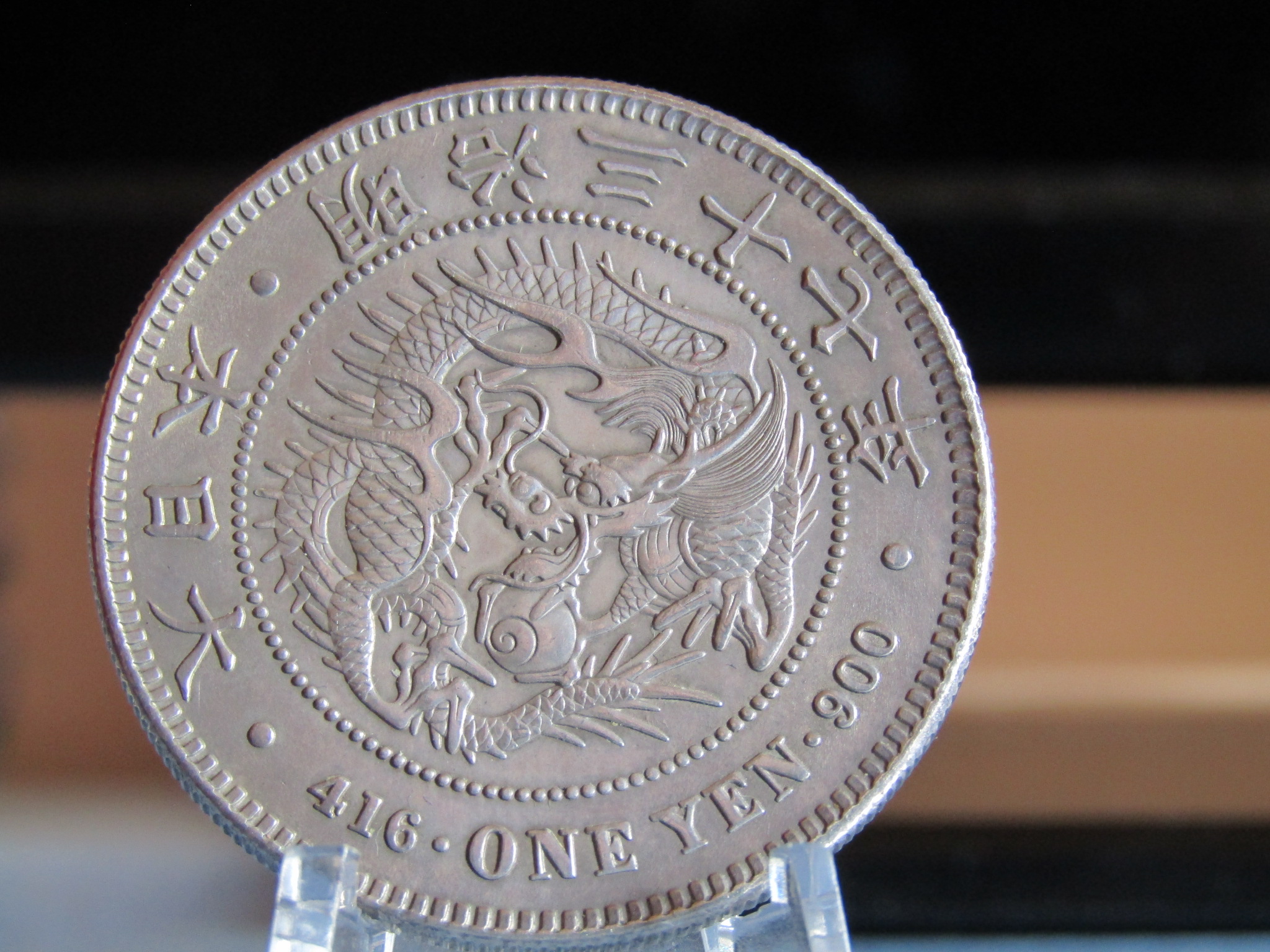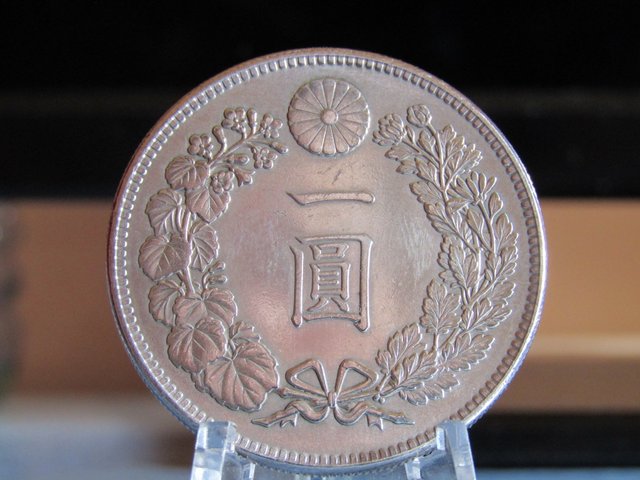Japan Dragon Yen Meiji 37 (1904)
A beautiful Japanese coin The dragon Yen which was minted on and off between 1870 and 1914.
This was to replace the old pre decimal ryo currency of the Tokugawa Shogunate.
It was modeled after the Mexican 8 reales coin which was one of the most widely traded coins of the day.
It has been sent off for grading at NGC so wish me good luck on that
In 1870, two years after the restoration of the Emperor Meiji to the Japanese seat of power in Tokyo, the imperial Japanese government began minting new coinage.
This dire need for new coinage came as a result of Japan’s shift from the old pre-decimal ryo currency of the Tokugawa Shogunate to the new decimal currency, the yen.
At the time, Japan was on the silver standard, so the government’s new coinage was minted primarily in silver.
Under these circumstances, the new Japanese silver yen was born.
A large, thick coin weighing 26.96 grams, the new one yen coin was minted in .900 fine silver.
The size, shape, and composition of the coin were modeled after those of the Mexican eight-real coin, popularly known as the “Mexican dollar”, which was one of the most widely-traded coins of the day.
Complications arose in 1871, when the Japanese government switched from the silver to the gold standard in an effort to keep up with American and European fiscal policy.
As a result, Japan briefly stopped producing silver one yen coins in favor of much smaller gold one yen coins.
The gold and silver yen ended up circulated alongside each other after 1878, when the Japanese government finally settled on a bimetallic standard.
The history of the silver Dragon Yen is complicated, to say the least. The coin went through a few significant changes after its initial minting.
The original 1870 design of the coin features a coiled dragon, enclosed in a circle, dominating the obverse of the coin, around which are inscribed the denomination and date of the coin in Japanese.
The reverse depicts a large sunburst. The coin’s obverse and reverse would change over the years, but the dragon would remain on all future designs.
The 1870 yen is the only Meiji-produced yen coin that bears no Latin alphabet or Arabic numeral inscriptions.
In 1874 and 1875, after a short halt in production, silver one yen coins were minted with a new design, now featuring the inscription “416 • ONE YEN • 900” on the border around the central dragon on the obverse.
These coins were marked for foreign trade only, but they later fell into domestic use within Japan.
From 1875 to 1877, the government briefly stopped minting silver yen and instead minted nearly identical silver coins designated as “Trade Dollars”.
At 27.22 grams, these trade dollars were slightly heavier than the old yen coins.
Reverse side of Rare Japanese Silver Dragon Yen c1885
Japanese trade dollars look nearly identical to their one yen counterparts except for their obverse and reverse inscriptions, which read “420 GRAINS • TRADE DOLLAR • 900 FINE” and “Trade Dollar” in Japanese, respectively.
By 1878, the government had again begun exclusively minting silver one yen coins in the 1874 design.
Both the post-1874 yen and the trade dollar have totally different reverses from the 1870 yen; instead of a sunburst they bear the denomination of the coin in Japanese
The production of the 1874 design silver one yen coin lasted until 1914, after which no further silver one yen coins were produced.


¡¡Interesant information bro!!
I want more😙
Thank you post has been updated
beautiful coin!
Congratulations @kevin-grootaers! You have completed some achievement on Steemit and have been rewarded with new badge(s) :
Click on any badge to view your own Board of Honor on SteemitBoard.
For more information about SteemitBoard, click here
If you no longer want to receive notifications, reply to this comment with the word
STOPThat's a beautiful coin. I'd like to know more about it too. The dragon is cool, dragons are always cool. The Japanese writing too.
Thank you post has been updated